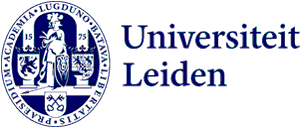Report LUCAS Conference Bodies Matter 15-16 April 2021
Over two days in the middle of April the Leiden University Centre for the Arts in Society hosted the virtual Bodies Matter conference. Almost two years in the making, the conference was an exciting and timely opportunity to discuss and debate histories, theories and practices of bodies.
Through the title of the conference we sought to echo Judith Butler’s influential book Bodies that Matter (1993), in which she addresses the ways in which discourse and practice shape our understanding of the very possibilities of bodily experiences and gender identities. In the preface she remarks that she “could not fix bodies as simple objects of thought,” a point that we felt was as relevant as ever as we contend with ever-more means of mediating, constituting and subjecting bodies.
The 14 presentations over the course of the conference provided a rich array of disciplinary perspectives on bodies. Our two keynote speakers, Professor Elleke Boehmer and Associate Professor Willemijn Ruberg, provided valuable points of departure for each of the two days. Through rigorous theorization and historical contextualisation, Boehmer demonstrated the multiple ways in which desiring and queer bodies, in colonial and postcolonial contexts, can negotiate and rupture structures of power. Engaging with problems of autonomy and consent through cases of forensic practices, Ruberg presented a framework for articulating a history of bodily inviolability that accounts for different social, political and cultural settings. The six panels addressed various themes, from legacies of colonial classification to the maintenance of community. Ranging across the long arc of history, from the ancient and to contemporary periods, the series of compelling talks not only demonstrated the breadth of engagements with the body, but also set the stage for enlivening interdisciplinary exchanges. Concluding the second day, Professor Frans Willem Korsten generously provided reflections on the breadth of scholarship presented, and stressed that the body remains in potentia as a set of capacities always resistant to control.
While we initially harboured some worries that the online format would inhibit interaction, we experienced the opposite. The welcoming atmosphere helped foster a lively set of discussions, so much so that they frequently extended into our coffee and lunch breaks. Certainly, the digital realm presents its own challenges, and admittedly we were not without some slight technical glitches, but it thankfully allowed an inclusive range of voices and perspectives to be offered. In that respect, the variety of topics we addressed was matched only by the diversity of speakers and participants, who hailed from a range of cultural and institutional backgrounds. For these reasons, we left the conference energised, perhaps demonstrating the limitless potential of the body, especially when it can come together with others.
Bodies Matter Conference Committee:
Leonie Henkes, Dimitris Kentrotis Zinelis, Christopher Williams-Wynn, Liang Kai Yu


